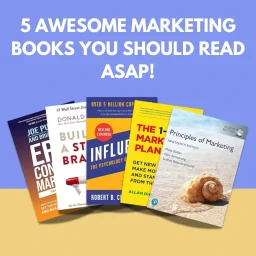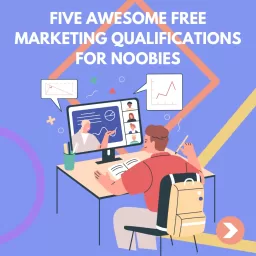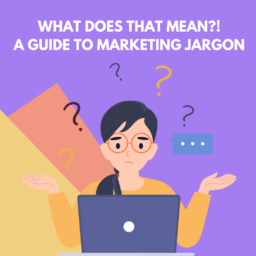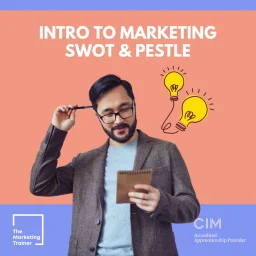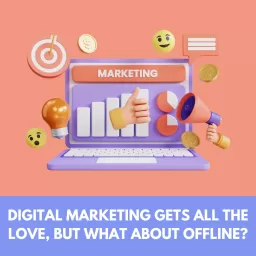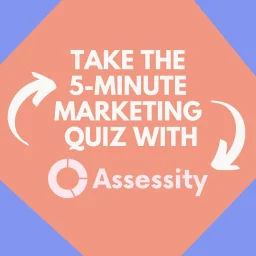If marketing had a mischief-maker-in-chief, it would be Rory Sutherland. Vice Chairman of Ogilvy UK, TED speaker, and author of Alchemy: The Surprising Power of Ideas That Don’t Make Sense, Sutherland has built his career on showing that human behaviour rarely follows neat, logical rules. Instead, he argues, our choices are shaped by quirks of perception, psychology, and storytelling far more than by rational calculation.
His work blends behavioural economics with marketing in a way that’s both practical and playful—challenging the obsession with data, efficiency, and “best practice” that dominates so many boardrooms. For Sutherland, the magic of marketing lies in uncovering those small, illogical tweaks that change how people feel, not just what they think.
With that in mind, here are five of his most memorable lessons—quirky, counterintuitive, and surprisingly useful for anyone starting out in marketing.
1. Perception is Reality (No, Really)
One of Rory’s favourite tricks is pointing out that value often has nothing to do with “objective” reality. A train that takes 3 hours and 50 minutes instead of 4 hours is “faster” and more valuable in people’s heads, even though the difference is 10 minutes. Change how something feels, and you often don’t need to change the thing itself.
👉 Don’t always try to fix the product; sometimes fix how people see it. A clever tweak in positioning or framing can be cheaper and more powerful than an expensive rebrand or product overhaul.
2. The Opposite of a Good Idea Can Also Be a Good Idea
Conventional business logic says if something works, do more of it. Marketing logic says… sometimes do the exact opposite. If premium brands succeed by looking exclusive, budget brands can succeed by looking accessible. One size does not fit all.
👉 Resist the urge to copy-paste “best practices.” What works brilliantly for Apple won’t necessarily work for Auntie June’s Cupcake Business.
3. Logic is Overrated (Humans Are Weird)
In the world of rational spreadsheets and tidy marketing plans, it’s easy to assume customers act logically. Spoiler: they don’t. People pay extra for bottled water, buy cars that go faster than any speed limit, and watch adverts they claim to hate. Sutherland argues that tapping into human psychology – status, signalling, identity – often beats appealing to pure reason.
👉 Don’t just think, “What’s the logical benefit?” Think, “What irrational itch does this scratch?”
4. Small Things Can Have Huge Effects
Rory once joked that Eurostar could’ve saved billions on new trains by instead hiring supermodels to hand out free wine. Exaggeration aside, the point stands: small, imaginative tweaks can sometimes matter more than massive investments. A slightly better user journey, a more reassuring message, or even a witty line of copy can change behaviour in ways a “strategic overhaul” never will.
👉 Never dismiss the “little” ideas. They might move the needle more than the grand plans.
5. Test the Silly Stuff
Most organisations are allergic to ideas that look odd. But Sutherland insists that silly-sounding experiments often reveal hidden truths. Who would’ve thought that chunky KitKats, yellow Post-it Notes, or Walkers’ “Do Us a Flavour” campaign would succeed? Yet they did.
👉 Run the experiment. If it fails, you’ll have a funny story. If it works, you’ll look like a genius.
Final Thought
If you’re new to marketing, Rory Sutherland’s ideas might sound playful – even a little strange – but that’s the point. Marketing isn’t about ticking boxes or building perfect spreadsheets; it’s about influencing how people feel.
So how can you use this in practice?
-
Start small. Don’t wait for a massive rebrand or budget. A clever headline, a smoother sign-up form, or a surprising freebie can shift behaviour.
-
Think psychology, not just logic. Ask yourself: “Why would someone want this?” not just “What does it do?”
-
Challenge “best practice.” Just because it worked for a big brand doesn’t mean it’s right for your audience. Test, adapt, and don’t be afraid to try something that sounds silly.
-
Look for perception gaps. Sometimes the quickest wins come from how something is framed, not what it is.
The big lesson? Great marketing is less about budgets and more about curiosity, creativity, and understanding people. If you can keep those things in mind, you’ll already be thinking like a marketer – even at the very start of your career.
Want more Rory Sutherland content?
Interested in seeing more of our guides, advice, and articles on marketing apprenticeships?
Then sign up for our monthly newsletter. We’ll send you all the information on our latest stuff and general updates as well. Sign up below!





